September 27, 2021
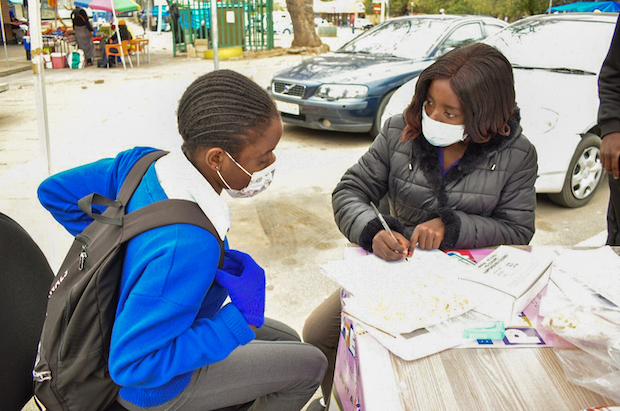
Enrolling an adolescent girl/young woman in PrEP
Bummhi — Ciheb’s local partner in Botswana — has made key contributions to the introduction, rollout, and scale up of pre-exposure prophylaxis (PrEP) on a national level to help achieve the UNAIDS 90-90-90 HIV targets more quickly. The rollout process began in 2015 but significantly increased in the last year.
Between 2015-2016, the country began the process of adopting PrEP through consultation. Between 2016-2018, the country prepared for implementation. The initial phase of implementation took place between 2018 and 2020.
According to the Botswana National PrEP for HIV Prevention Social and Behaviour Change Communication Strategy, by 2017, 310,000 (86%) people living with HIV knew their HIV status, 300,000 (84%) were receiving antiretroviral therapy (ART), and 280,000 (81%) receiving ART were virally suppressed.
Early Stages
Soon after the World Health Organization recommended PrEP as a public health intervention in 2015, Botswana began consultation with key stakeholders to adopt PrEP as part of HIV prevention. PrEP is a medicine that is highly effective at preventing HIV when the medication is taken as prescribed. By 2016, Botswana had included PrEP in the ART guidelines.
Between 2016-2017, the country began preparations for implementation in earnest. The Department of HIV/AIDS Prevention and Care established a technical working group. A feasibility and implementation assessment was conducted to provide an analysis of PrEP’s impact, cost, and cost effectiveness. The country also developed data collection tools and an implementation framework.
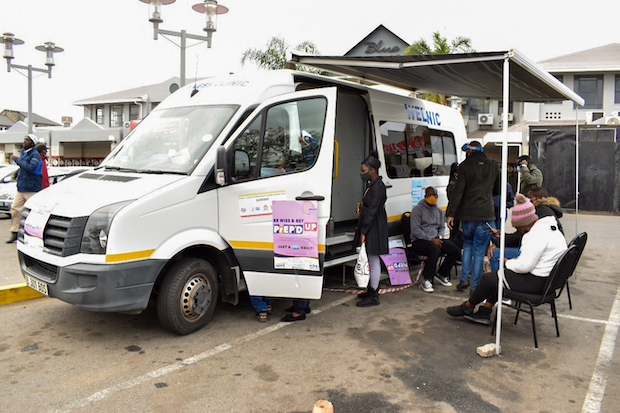
A mobile clinic for PrEP outreach services
Implementation and Scale-Up
By 2018, the country was ready to begin phased implementation of PrEP on the national level. PrEP was first offered to key populations and adolescent girls and young women (AGYW) in four districts, community-based AGYW in two other districts, and at six youth-friendly centers at government facilities in four districts.
As the implementation progressed over the years, PrEP has expanded from being offered in six facilities in September 2020 to 76 facilities in June 2021. Other progress includes healthcare worker sensitization and training of providers, on-site mentoring, and the integration of DREAMS and facility-community referral strengthening.
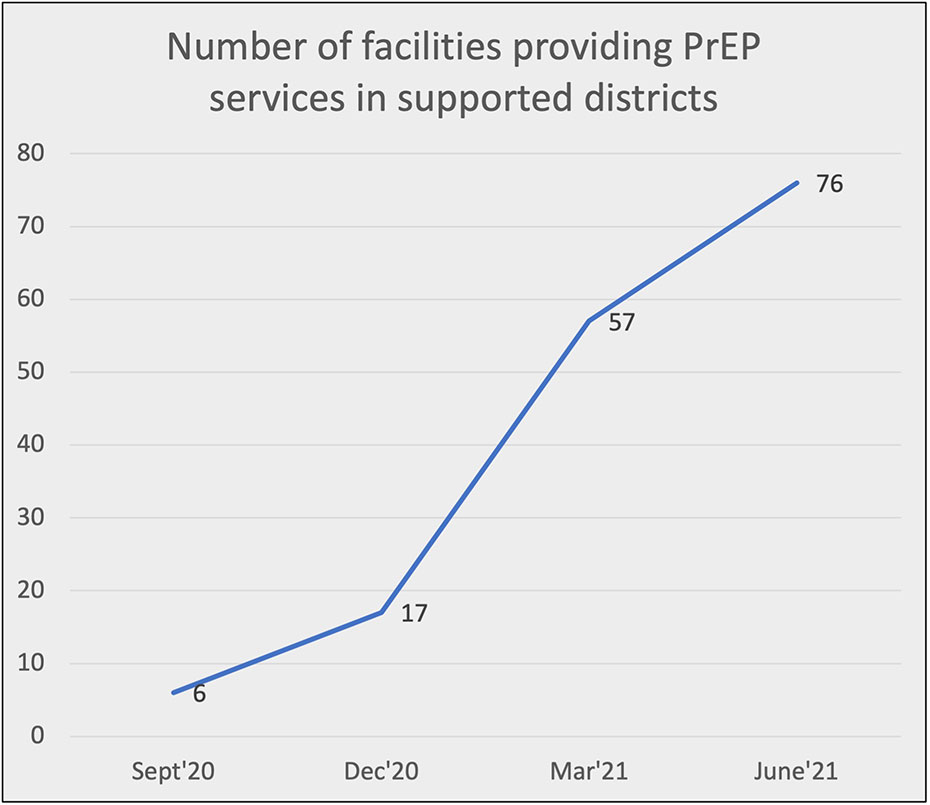 An expansion of the number of faciltiies that PrEP is offered in.
An expansion of the number of faciltiies that PrEP is offered in.
Between October 2020–July 2021, and despite the COVID-19 pandemic, the scale up has seen progressively increasing numbers of clients newly initiated on PrEP. During the first five months of this period, there was an average of 63.6 new clients initiated on PrEP, which jumped to 486.2 in the next five-month period. Part of the improvements could be attributed to two changes enacted in the first five-month period: the recruitment of a PrEP focused technical team and the recruitment and deployment of a PrEP linkage assistant.
The Ciheb-supported Accelerating Botswana through the Last Mile to Epidemic Control (ABLE) grant in Botswana has supported the initiation of 2,277 clients on PrEP since October 2020, with 70% of clients initiated in the last quarter alone (see figure below). The progress towards the annual target for PrEP initiation at PEPFAR-supported districts was 94% at end of the third quarter.
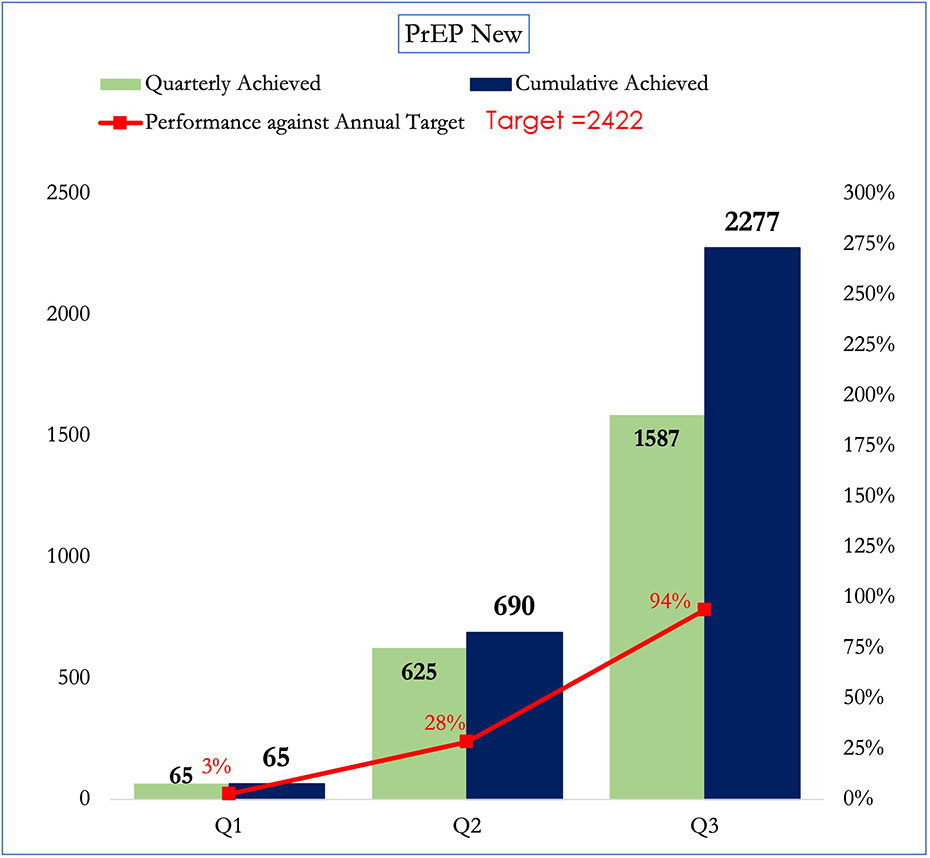 New clients initiated on PrEP through the ABLE grant in the last three quarters.
New clients initiated on PrEP through the ABLE grant in the last three quarters.
One of the priority populations for PrEP enrollment to mitigate the spread of HIV is adolescent girls and young women (AGYW). The current results from ABLE of newly initiated on PrEP across DREAMS implementing districts show that more than 54% (968/1790) of clients enrolled on PrEP are AGYW.
Proportion of AGYW in PrEP new initiation at DREAMS implementing district
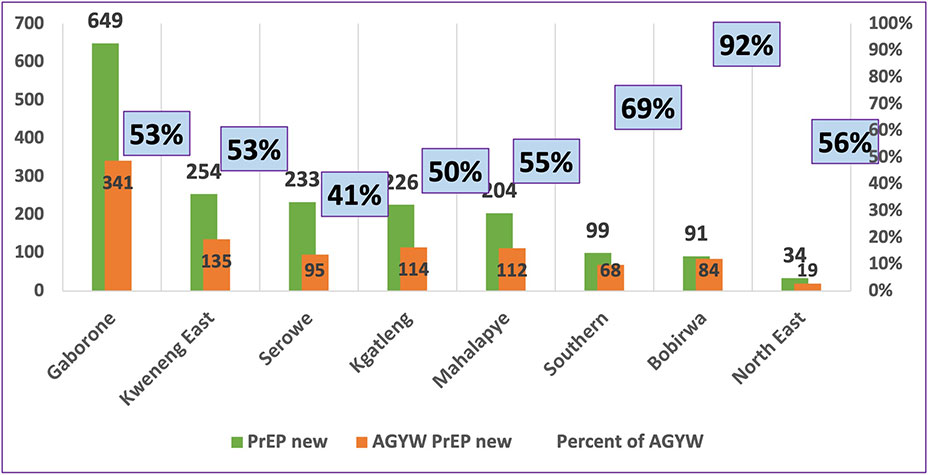
Challenges and Opportunities
There have been many lessons learned in the first few years of the national rollout that will help to improve implementation. There remains a challenge of hesitancy by both clients and providers due to a misconception, lack of understanding, or conflict with their personal values about PrEP. A serum creatinine reagent stock-out of more than two months in the Mahalapye District also created additional challenges.
On the other hand, there are many opportunities for knowledge sharing and learning from peers. Bummhi can leverage Ciheb’s experience working with PrEP in other countries, and some excelling facilities in Botswana have already begun peer exchange and collaborative learning sessions.
Contact
Center for International Health, Education, and Biosecurity
Institute of Human Virology
Anthony Okoth
Regional Communications Specialist
Related stories
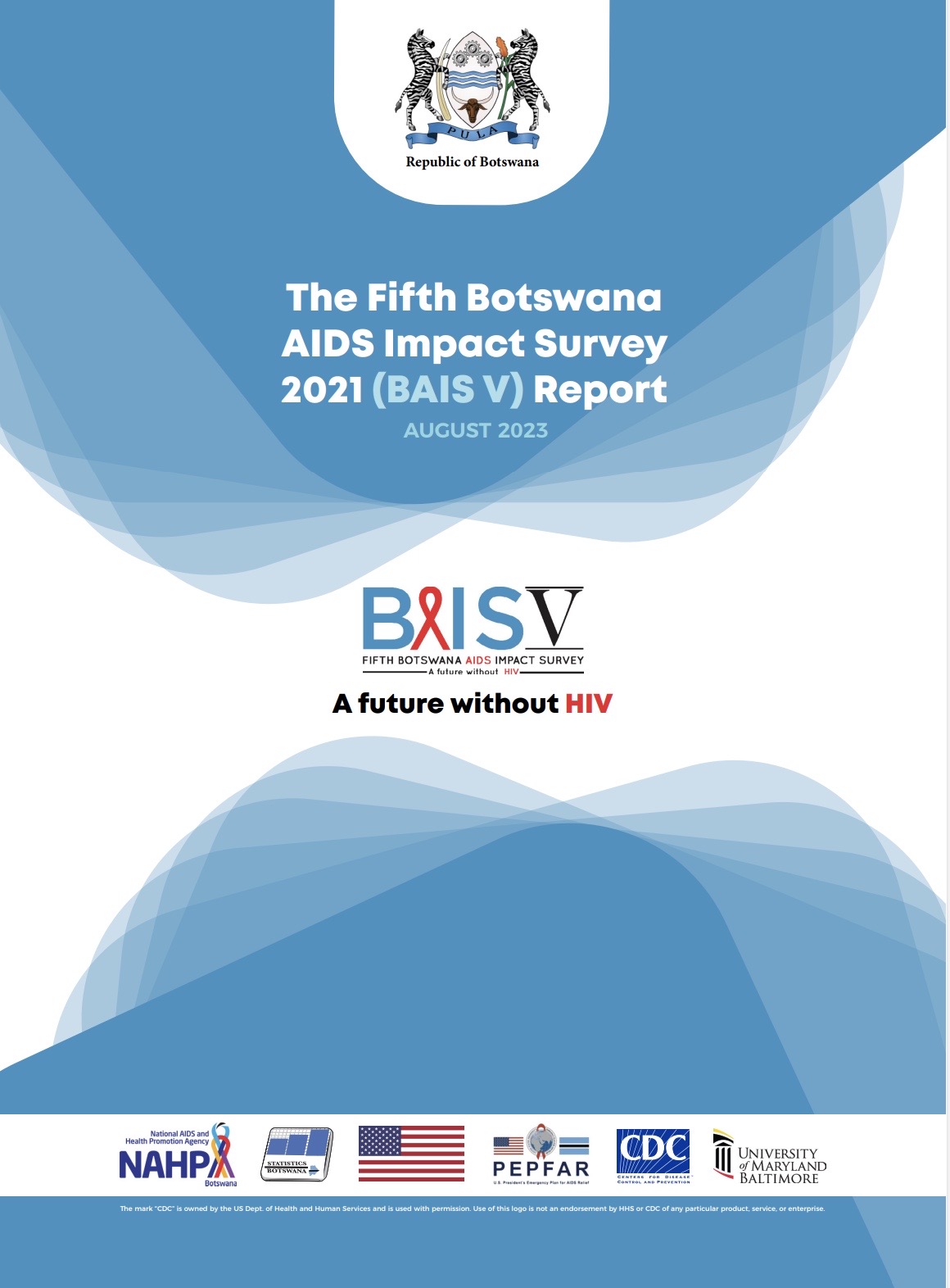
Tuesday, September 19, 2023
BAIS V Report Launched
The Fifth Botswana AIDS Impact Survey (BAIS V) Report 2021 is a nationally representative household-based survey conducted between March and August 2021. Its main aim was to provide information on national and district-level progress towards achieving key HIV targets.

Friday, July 07, 2023
The Intersection of Non-Communicable Diseases and HIV: Opportunities for Botswana to Lead the Response
For a country like Botswana with a high HIV burden, integration of healthcare services is vital to provide comprehensive interventions. Lifestyle factors such as tobacco smoking, alcohol use, unhealthy diet, and physical inactivity heighten the risk of developing NCDs for people living with HIV.

Friday, July 07, 2023
BSMART Study Launch: Combating Smoking Among HIV-Positive Individuals In Botswana
BSMART focuses on identifying effective interventions for HIV-positive individuals who smoke. The launch of the BSMART Study signifies a significant step forward in tackling tobacco use among HIV-positive individuals in Botswana.

Tuesday, February 07, 2023
HIV Treatment and Prevention in Zambian Prisons May be Model for Prisons Worldwide
A recent study performed in Zambia by University of Maryland School of Medicine’s (UMSOM) Institute of Human Virology researchers found that high uptake of HIV preventative medicine, known as pre-exposure prophylaxis (PrEP), is possible in prison populations with adequate resources and support from the criminal justice health system.
Monday, March 21, 2022
US government donates BIAS V survey equipment to Botswana government
The Maryland Global Initiatives Cooperation (MGIC) and Botswana-University of Maryland School of Medicine Health Initiative (Bummhi) held a handover event for equipment used in the Fifth Botswana AIDS Impact Survey (BAIS V) on March 8, 2022 in Gaborone. BAIS V was funded by the Centers for Disease Control and Prevention (CDC) and implemented by MGIC-BW.
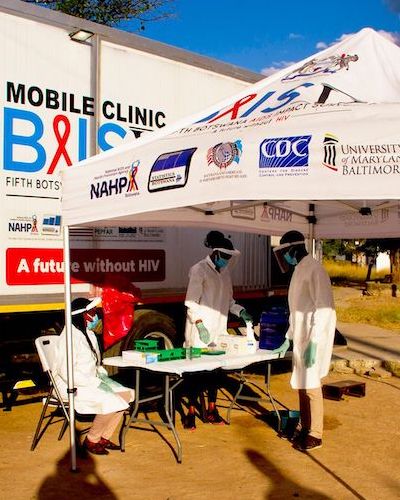
Wednesday, December 01, 2021
Preliminary results of national HIV survey (BAIS V) demonstrate Botswana’s remarkable progress achieving HIV epidemic control
Preliminary results from the fifth Botswana HIV/AIDS Impact Survey (BAIS V), announced today by the President, His Excellency Dr. Mokgweetsi E. K. Masisi demonstrate that for the first time at a national level among adults aged 15-64, Botswana has exceeded the 2020 UNAIDS 90-90-90 targets which call for 90 percent of all people living with HIV (PLHIV) to be aware of their status, 90 percent of those aware of their status to be on antiretroviral treatment (ART), and 90 percent of those on ART to achieve viral load suppression.

Friday, October 29, 2021
PrEP used in the fight to end HIV in Kenya
In 2017, the Government of Kenya adopted a new policy called “A Framework for Pre-exposure Prophylaxis of IV in Kenya.” This framework directed the roll out of pre-exposure prophylaxis (PrEP) in Kenya, addressing the key focus areas of: availability, acceptability, accessibility of PrEP, and the holistic integration into the national HIV combination prevention strategy. To align with the government, Ciheb in Kenya’s PACT Endeleza program, which recently ended, also started offering PrEP that same year.
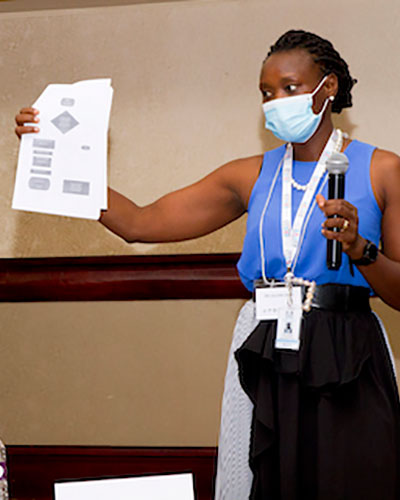
Saturday, September 25, 2021
COVID-19 Team Helps Steer BAIS V Survey Through Field Implementation in Botswana
At the resumption of the fifth Botswana HIV/AIDS Impact Survey (BAIS V), the project convened a small group of three to lead the COVID-19 response. Over the following months, this trio would lead a herculean effort to safeguard the health of staff and participants and allow the survey to proceed as safely as possible.
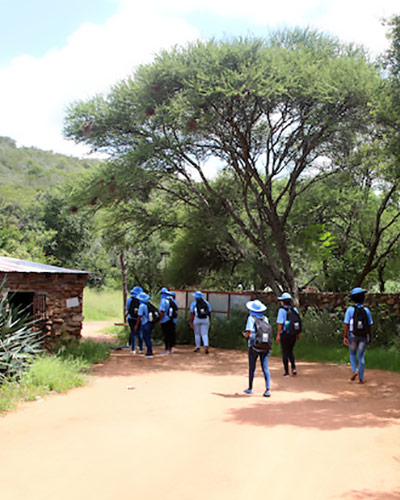
Tuesday, August 31, 2021
Field Implementation Finishes in Botswana's BAIS V Survey
The Fifth Botswana HIV/AIDS Impact Survey (BAIS V) has successfully completed six months of field implementation, and teams have demobilized out of the field. BAIS V reached nearly 20,000 participants, more than 13,500 households, and completed more than 10,000 household interviews.
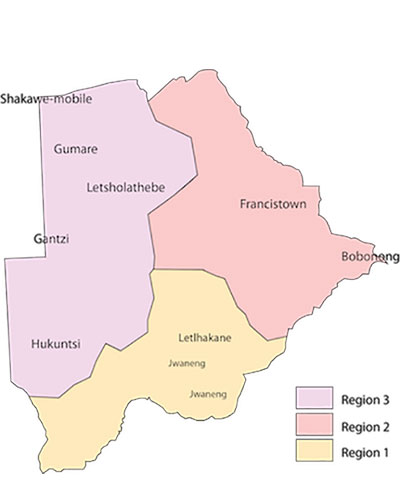
Tuesday, June 01, 2021
HIV/AIDS Survey in Botswana Enters New Phase
The Fifth Botswana HIV/AIDS Impact Survey (BAIS V) has now been in the field for nearly two months and has completed the first wave of implementation. Approximately 3,800 households have been surveyed across the project’s three regions (see map below). This represents approximately one-third of the 13,564 households that will be surveyed nationwide before the project concludes this summer.

